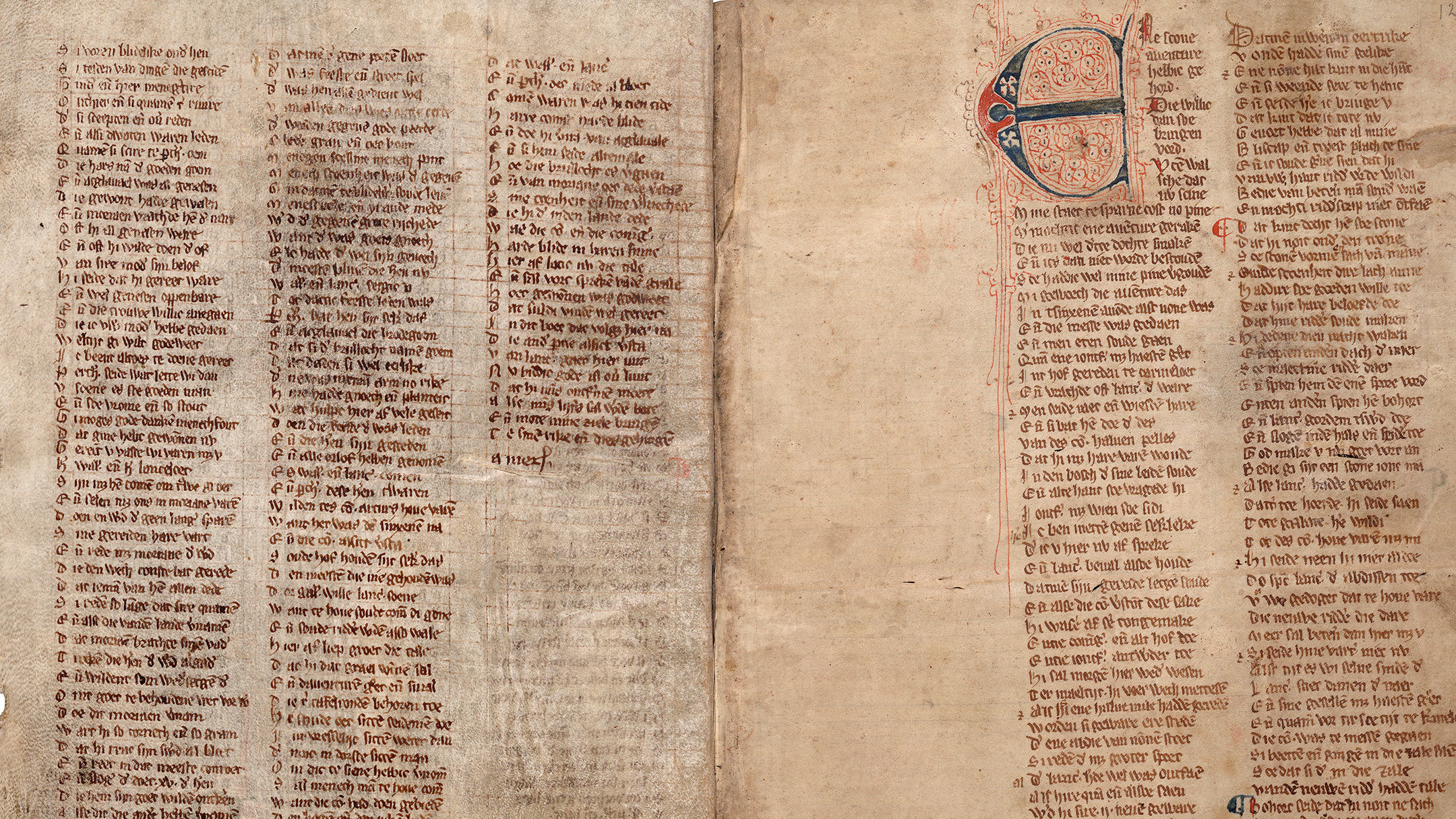Miyashiro, Adam. "Reading the medieval epic." Throughlines. www.throughlines.org/suite-content/reading-the-medieval-epic. [Date accessed].
Reading the medieval epic
A reading list to expand students' understanding of the medieval epic.

Primary Works
The Song of Roland. Trans. Glyn S. Burgess. Penguin Classics, 1990. ISBN: 978-0140445329
The Song of the Cid: A Dual-Language Edition with Parallel Text. Trans. Burton Raffel. Penguin Classics, 2009. ISBN: 978-0143105657
Niane, Djibril Tamsir, and G. D. Pickett. Sundiata: An Epic of Old Mali. Revised Edition, Pearson College Div, 2006. ISBN: 978-1405849425
Secondary Works
Akbari, Suzanne Conklin. “From Due East to True North: Orientalism and Orientation.”
The Postcolonial Middle Ages (2000): 19–34. New Middle Ages (NeMiA).
Burman, Thomas E. Reading the Qur’an in Latin Christendom, 1140-1560. Philadelphia: University of Pennsylvania Press, 2009.
Carpenter, Dwayne E. “Social Perception and Literary Portrayal: Jews and Muslims in Medieval Spanish Literature.” Convivencia: Jews, Muslims, and Christians in Medieval Spain. Ed. Vivian B. Mann, Thomas F. Glick, and Jerrilynn D. Dodds. New York: George Braziller, 1992. 61–82.
Chism, C. “Arabic in the Medieval World.” PMLA 124.2 (2009): 624–631.
Cobb, Paul M. The Race for Paradise: An Islamic History of the Crusades. Oxford: Oxford University Press, 2016.
Cohen, Jeffrey Jerome. The Postcolonial Middle Ages. First Paper. London: Palgrave Macmillan, 2001.
Constable, Olivia Remie. Medieval Iberia: Readings from Christian, Muslim, and Jewish Sources. Philadelphia: University of Pennsylvania Press, 1997.
Davis, Kathleen. Periodization and Sovereignty: How Ideas of Feudalism and Secularization Govern the Politics of Time. Philadelphia: University of Pennsylvania Press, 2008.
Davis, Kathleen. “Time Behind the Veil: The Media, the Middle Ages, and Orientalism Now.” The Postcolonial Middle Ages. New York, NY: St. Martin’s, 2000. 105–122. New Middle Ages (NeMiA).
Davis, Kathleen, and Nadia Altschul, eds. Medievalisms in the Postcolonial World: The Idea of “the Middle Ages” Outside Europe. Baltimore: Johns Hopkins University Press, 2009.
Ganim, John M. Medievalism and Orientalism: Three Essays on Literature, Architecture and Cultural Identity. London: Palgrave Macmillan, 2008.
Khaldūn, Ibn, and Franz Rosenthal. The Muqaddimah: An Introduction to History. Princeton: Princeton University Press, 1958.
Kinoshita, Sharon. Medieval Boundaries: Rethinking Difference in Old French Literature. Philadelphia: University of Pennsylvania Press, 2006.
Kinoshita, S. “‘Pagans Are Wrong and Christians Are Right’: Alterity, Gender, and Nation in the Chanson De Roland.” Journal of Medieval and Early Modern Studies 31.1 (2001): 79–112.
Lampert-Weissig, Lisa. Medieval Literature and Postcolonial Studies. Edinburgh: Edinburgh University Press,2010.
Maalouf, Amin. The CrusadesThrough Arab Eyes. New York: Schocken, 1989.
Menocal, María Rosa, and Raymond P. Scheindlin. The Literature of Al-Andalus. Cambridge: Cambridge University Press, 2000.
Nesbitt, Nick. “Resolutely Modern: Politics and Human Rights in the Mandingue Charter.” The Savannah Review 14 (2014): 11-19.
Said, Edward W. Orientalism. 1st Vintage Books ed. New York: Vintage, 1979.


.jpg)




